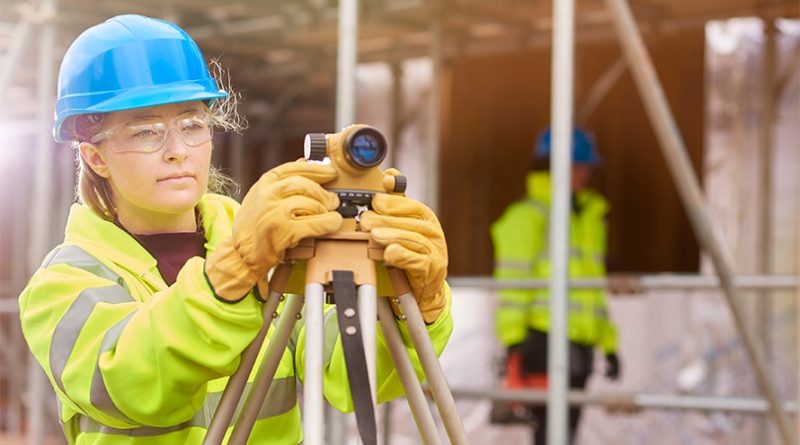Accuracy Is Key: How Expert Land Survey Services May Save Your Development
In the field of building, exactness is not just a option; it is a necessity. When embarking on https://level3buildingsurveys.co.uk/ , whether it is building a new dwelling, developing a commercial space, or parceling land, the accuracy of surveillance services plays a critical role in deciding the project's success. Hiring a qualified surveyor can protect you time, money, and unnecessary legal troubles, ensuring that your construction blueprints align seamlessly with regional regulations and property boundaries.
Comprehending the nuances of surveying is crucial for individuals involved in property deals or development. From boundary disputes to zoning compliance, the implications of inaccurate surveys can echo throughout a project, possibly causing costly errors. In this article, we will examine the top reasons to hire a professional surveyor, what you can look forward to during a land survey, and the various types of surveys that play a essential role in defending your investments. With advancements in technology such as GPS and UAVs, surveying is always evolving, and realizing its importance can be crucial in your project's success.
Reasons to Employ a Qualified Land Surveyor
As you embark on any land endeavor, engaging a licensed surveyor is crucial for ensuring accuracy and adherence to regulations. A professional surveyor brings knowledge in determining and defining land boundaries, which is key for preventing disputes between property owners. Their understanding of local laws and regulations means that a surveyor can identify potential zoning issues, making sure your project complies to legal standards. This preventive approach can save time, money, and litigation headaches in the future.

In addition, professional surveyors employ advanced technology, such as Global Positioning System and unmanned aerial vehicle capabilities, to obtain accurate data and produce comprehensive maps. This technology greatly enhances the accuracy of measurement compared to methods used by non-professional individuals. Whether you are building on a plot of land, buying a new home, or initiating construction, the detailed data provided by a qualified land surveyor can aid sound decision-making. This level of accuracy ensures that all components of your project are based on firm foundations, leading to successful outcomes.
Lastly, engaging a licensed surveyor defends your investment by clarifying your property rights. Accurate surveys define property boundaries, easements, and encroachments, all of which can greatly affect your rights as a property owner. Skipping this crucial step can result in misunderstandings among neighbors, costly legal disputes, or worse, project delays. By relying on a licensed land surveyor, you can enter into your project with certainty, knowing that your interests are safeguarded.
Categories of Land Surveys and Their Importance
Land surveying includes various types of surveys, each serving a distinct purpose and importance in the field of property management and land development. Boundary surveys are essential for establishing the exact lines of property ownership, which assists avoid disputes between neighbors. These surveys are commonly necessary during property transfers, ensuring that potential buyers are fully aware of their boundaries. In contrast, topographic surveys are utilized to map out the shapes and features of the land, including altitude changes and physical obstacles. This information is vital for construction projects, as it guides design decisions and site planning.
Construction staking surveys are a further essential type that guides builders by marking out the proposed locations of structures on the land. These surveys verify that construction complies to the approved designs, thereby reducing errors and costly rework. ALTA/NSPS surveys offer a higher level of detail, as they are often required for commercial transactions and are used to confirm property rights and potential encumbrances. Understanding these different types of surveys permits property owners and developers to choose the right services for their own needs.
Lastly, environmental surveys play a crucial role in analyzing land for potential hazards or environmental impact. These surveys help in zoning compliance and land use planning, making them essential for projects that may impact natural resources or local ecosystems. By understanding the multiple types of land surveys available, individuals and developers can make educated decisions that preserve their investments, enhance project efficiency, and comply with legal requirements.
Technology and Innovation in Land Measurement
The land measurement industry has seen a notable evolution over the past few years thanks to advances in technology. Land surveyors now utilize Global Positioning Systems, which provide high-precision location data, allowing for better measurements and quicker survey completion times. The introduction of drone technology has further enhanced the capabilities of surveyors by enabling airborne surveys of vast spaces quickly and effectively. Unmanned aerial vehicles can obtain high-resolution images and data from vantage points that were previously hard to access, making it simpler to assess landscapes and map zones precisely.
In addition to unmanned aerial vehicles and GPS, technological developments have also transformed how land surveyors interpret and display data. GIS have become crucial to the industry, allowing surveyors to create detailed digital maps that can integrate various data sets. This technology allows for not only better visual representation but also improved analytical capabilities, helping stakeholders make informed decisions based on accurate and thorough information.
As these technological innovations continue to progress, the profession of surveying is not only becoming more efficient but also more approachable. Customers can look forward to faster response times and improved accuracy, which eventually leads to better outcomes for their projects. Staying abreast of these developments is important for both surveyors and customers looking to ensure they get the best solutions possible, making tech a vital element in contemporary surveying practices.